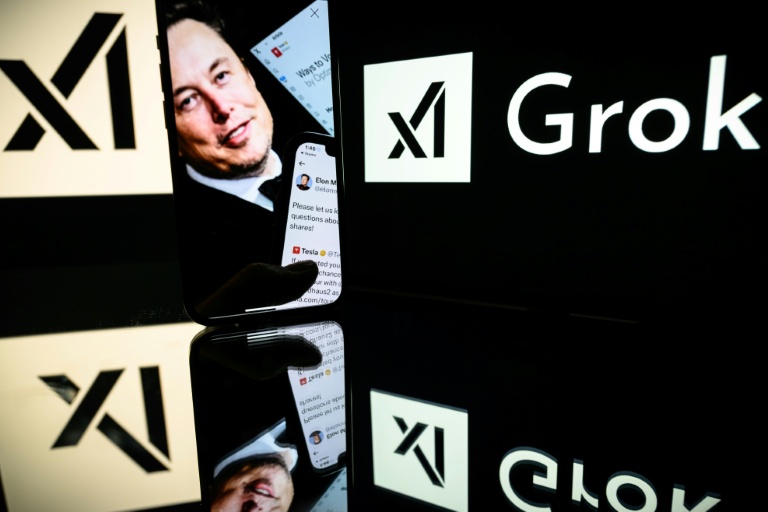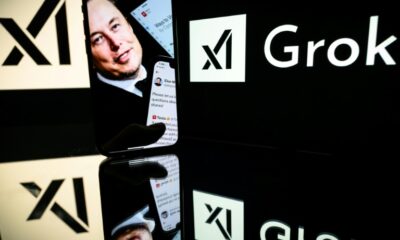Science
Musk’s Grokipedia Faces Scrutiny Over Questionable Sources

Elon Musk’s Grokipedia has come under fire for relying on “questionable” sources, according to a new study released by researchers from Cornell Tech. The findings raise concerns about the reliability of this AI-powered encyclopedia, which Musk’s company xAI launched in February 2024 to rival Wikipedia, a widely used crowdsourced information platform.
The report highlights that Grokipedia includes thousands of citations from sources deemed “problematic” and “unreliable.” Researchers Harold Triedman and Alexios Mantzarlis analyzed hundreds of thousands of articles on Grokipedia, noting a significant prevalence of dubious sources, particularly in entries related to political figures and contentious issues. They wrote, “It is clear that sourcing guardrails have largely been lifted on Grokipedia,” suggesting that this lack of oversight compromises the quality of information presented.
One notable example from Grokipedia is its article on the “Clinton body count,” a conspiracy theory linking the deaths of multiple individuals to former U.S. President Bill Clinton and his wife, Hillary Clinton. This entry cites InfoWars, a far-right website known for disseminating misinformation. The study also identified citations from various right-wing media outlets in the United States and India, along with state media from China and Iran, and other platforms accused of promoting pseudoscience and conspiracy theories.
According to the report, Grokipedia often reproduces text directly from Wikipedia. Articles on Grokipedia that do not reference Wikipedia are 3.2 times more likely to include sources classified as “generally unreliable” by the Wikipedia community. Additionally, they are 13 times more likely to reference sources that Wikipedia has blacklisted due to their unreliability.
In response to a request for comment from Agence France-Presse (AFP), xAI provided an automated reply stating, “Legacy Media Lies.” Musk, known for his strong opinions on various topics, has claimed that Grokipedia aims to deliver “the truth, the whole truth and nothing but the truth.” He announced plans to rebrand Grokipedia as “Encyclopedia Galactica” once it reaches an acceptable standard, inviting public participation in its development.
Musk has been vocal about his criticism of Wikipedia, labeling it “Wokepedia” and urging his followers to cease donations to the platform. In contrast, Wikipedia founder Jimmy Wales recently refuted claims of a left-wing bias, describing such accusations as “factually incorrect.” He acknowledged, however, that there are areas for improvement within Wikipedia’s volunteer community.
Selena Deckelmann, chief product and technology officer at the Wikimedia Foundation, emphasized the importance of transparency and community involvement in Wikipedia’s editorial process. She stated, “Unlike Grokipedia, which relies on rapid AI-generated content with limited transparency and oversight, Wikipedia’s processes are open to public review and rigorously document the sources behind every article.” This commitment to openness, she argued, is essential for maintaining the trustworthiness and neutrality of a global encyclopedia.
As the debate over information reliability in the digital age continues, Grokipedia’s reliance on controversial sources raises questions about the future of fact-checking and information dissemination in online platforms.
-

 Politics1 week ago
Politics1 week agoSecwepemc First Nation Seeks Aboriginal Title Over Kamloops Area
-

 World4 months ago
World4 months agoScientists Unearth Ancient Antarctic Ice to Unlock Climate Secrets
-

 Entertainment4 months ago
Entertainment4 months agoTrump and McCormick to Announce $70 Billion Energy Investments
-

 Lifestyle4 months ago
Lifestyle4 months agoTransLink Launches Food Truck Program to Boost Revenue in Vancouver
-

 Science4 months ago
Science4 months agoFour Astronauts Return to Earth After International Space Station Mission
-

 Technology3 months ago
Technology3 months agoApple Notes Enhances Functionality with Markdown Support in macOS 26
-

 Top Stories1 month ago
Top Stories1 month agoUrgent Update: Fatal Crash on Highway 99 Claims Life of Pitt Meadows Man
-

 Sports4 months ago
Sports4 months agoSearch Underway for Missing Hunter Amid Hokkaido Bear Emergency
-

 Politics3 months ago
Politics3 months agoUkrainian Tennis Star Elina Svitolina Faces Death Threats Online
-

 Politics4 months ago
Politics4 months agoCarney Engages First Nations Leaders at Development Law Summit
-

 Technology4 months ago
Technology4 months agoFrosthaven Launches Early Access on July 31, 2025
-

 Top Stories3 weeks ago
Top Stories3 weeks agoFamily Remembers Beverley Rowbotham 25 Years After Murder





















